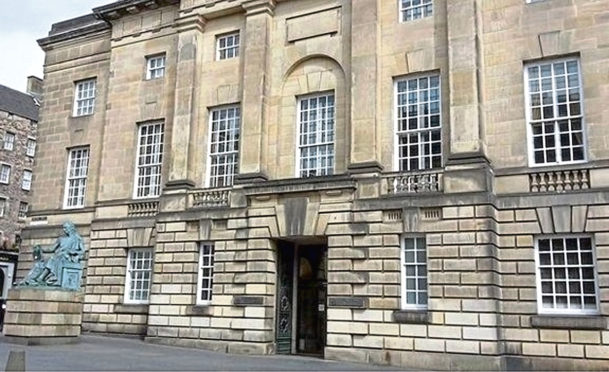A man accused of a £12.9 million fraud was the “sole conduit” between investors and the scheme used to commit the alleged crimes, a court heard.
Alistair Greig, 66, was the only person who had knowledge about short-term deposit accounts with the Royal Bank of Scotland, Jonathan Knowles, 41, told jurors.
Prosecutors claim the accounts didn’t exist and were the means Greig used to commit fraud.
Greig is on trial at the High Court in Edinburgh and denies the charges against him. He has lodged a special defence blaming others.
The court heard how Mr Knowles worked for Greig’s company Midas Financial Solutions (Scotland) Ltd between 2006 and 2012.
Mr Knowles said he worked as a mortgage adviser alongside a team of independent financial advisers at the Aberdeen firm.
He said during his time at the firm Greig was his boss and he announced that investors could access the short-term accounts.
Mr Knowles said there were no brochures or other documents available which detailed the scheme.
He said only Greig knew about the scheme.
Mr Knowles, of Aberdeen, added: “It seemed to me that this was a relationship which he had with someone at RBS.
“It was not as if any adviser could walk into the Royal Bank and present any investment into the scheme.”
Mr Knowles was giving evidence on the fourth day of proceedings against Greig, Boston, Lincolnshire.
Greig, formerly of Fraserburgh, denies charges of fraud and breaching financial and proceeds of crime laws.
During his evidence, Mr Knowles was asked by prosecution lawyer Steven Borthwick if Greig was the “sole conduit” for the scheme, to which Mr Knowles said yes.
Keep up to date with the latest news with The Evening Express newsletter
Mr Knowles said that Greig was the “only source” of information about the allegedly fraudulent scheme.
He said investors were offered a return on investments which were to be held in Royal Bank accounts over three-month, six-month, eight-month and 12-month periods. They were offered different percentage returns.
Mr Knowles said: “It just depended on what was on offer at the time.”
Mr Knowles said the investors were reassured that the scheme was safe.
He added: “There was no mention of risk to any investor.”
Prosecutors claim Greig “formed a fraudulent scheme to obtain sums of money”.
They claim the scheme was carried out between August 30 2001 and October 14 2014 at addresses in Aberdeen, Aberdeenshire and Lincolnshire.
It is claimed Greig knew there were no high-interest accounts with the Royal Bank of Scotland.
The Crown also claims “the sums of money returned to said investors did not represent interest made on the sums of money deposited by them but were sums of money that had been deposited in the scheme by other investors”.
The charge states that by “such false pretences” Greig obtained a total of £12,982,789.23 by fraud.
Prosecutors also claim his actions during this time breached the 2002 Proceeds of Crime Act by removing £5,789,567.02 “of criminal property” from Britain.
The trial continues.
